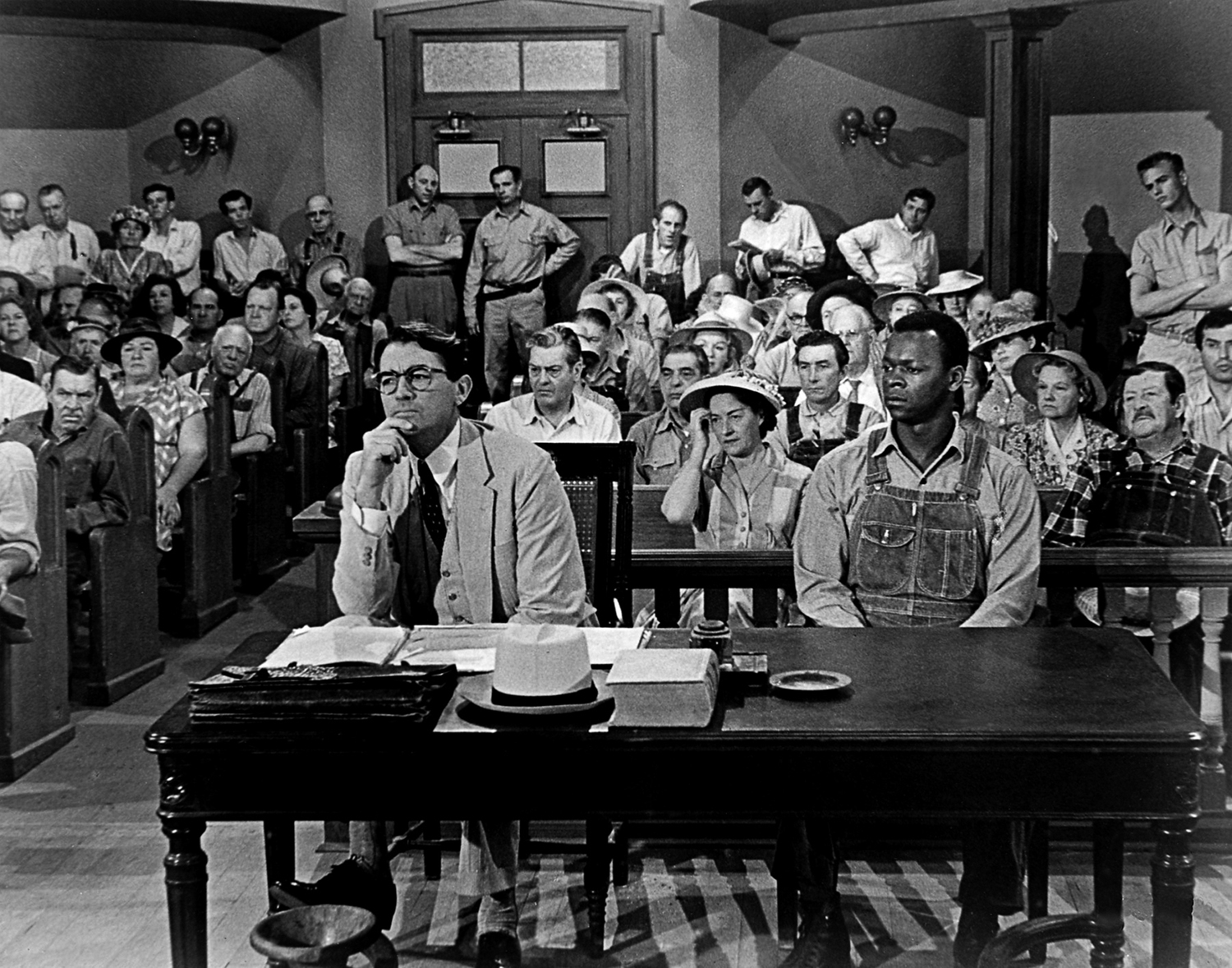
Gregory Peck as Atticus Finch weighs the evidence.
Although Flannery O’Connor dismissed it as a “child’s book,” Harper Lee’s Pulitzer Prize-winning novel To Kill a Mockingbird has always topped major literature lists. As recently as last fall, Mockingbird was dubbed the all-time “Great American Read” in a PBS contest that drew 4.2 million votes.
A combination Southern Gothic, courtroom drama, coming-of-age fable, and book-length argument for justice and compassion in the face of intolerance, the novel has enjoyed consistent popular and critical acclaim since its release in 1960. Its characters — precocious tomboy Scout, her brother Jem, their reclusive neighbor Boo Radley, their housekeeper Calpurnia — have all become an indelible piece of the cultural landscape, but none has carried as much weight as Atticus Finch, kindly father, front-porch philosopher, and tireless crusader against unkindness and injustice: a rhetorical superhero in a seersucker suit.
That it’s challenging to imagine Atticus Finch and not see a bespectacled Gregory Peck in a courtroom says something about the success of Robert Mulligan’s 1962 film adaptation. The part transcended good acting (Peck won Best Actor for his performance in 1963) and became something iconic. Even 40 years later, in 2003, the American Film Institute named Peck’s Atticus Finch “The Greatest Movie Hero of the 20th Century.” The actor embodied the character so fully that even Harper Lee once said the role gave Peck the opportunity to truly “play himself.”
His performance certainly adds real gravitas to an already masterful adaptation penned by acclaimed playwright and screenwriter Horton Foote. The film features fine performances by the young actors — Mary Badham as Scout and Phillip Alford as Jem, as well as Estelle Evans as Calpurnia, Brock Peters as the unjustly accused Tom Robinson, and a young Robert Duvall as Boo Radley.
Mulligan shot the film on a Hollywood backlot with sets copied directly from actual locations in Harper Lee’s hometown of Monroeville, Alabama, which gives the Depression-era movie an organic, lived-in quality that has aged well. It looks good. It sounds right. To Kill a Mockingbird is the rare adaptation that honors its beloved source material and still succeeds on its own merits.
It’s not perfect, though. Critics at the time of its release noted that the film shied away from providing any deeper context to the African-American characters and community. That bit of oversight, in a story largely concerned with racial injustice, feels much more obvious today. And while To Kill a Mockingbird still occupies its position in the American literary pantheon, the 2015 publication of Harper Lee’s previously unpublished and highly controversial “sequel,” Go Set a Watchman, somewhat complicated it by introducing readers to a more challenging portrait of Atticus Finch.
His equanimity shattered by the Civil Rights Movement, Watchman’s Atticus sounded more like George Wallace than the gentle father who instructed his school-age daughter to imagine how it might feel to live in someone else’s skin before she judged their actions. Readers reacted with horror and outrage — it seemed like a huge betrayal to have Atticus Finch be anything other than a figure of compassion and tolerance.
A new theatrical adaptation of To Kill a Mockingbird, penned by Aaron Sorkin and starring Jeff Daniels, presents the most nuanced Atticus yet: less beatific than the original but far less disturbing than the Watchman version. Mockingbird the play is selling out shows on Broadway. Critics are gushing.
Audiences now seem ready to embrace a new, somewhat more complicated Atticus. Whether Sorkin’s Atticus will ever make his way onto film is unknown — but if he does, topping Gregory Peck’s legacy performance will be the biggest trial.
To Kill a Mockingbird shows Thursday, March 14, 12-2pm in the Rogow Room at the Transylvania County Public Library (212 S. Gaston St., Brevard), part of the Second Look Films series. The screening (and popcorn) is free. For more information, call 828-884-3151, x. 1800, or see library.transylvaniacounty.org.



